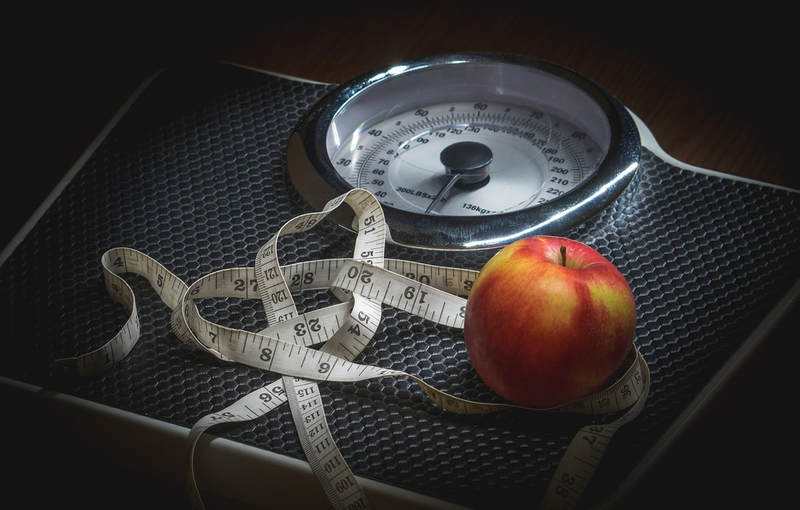Eating Late at Night Could be a Risk Factor For Obesity
Obesity is associated with high blood pressure, increased blood sugar, and a higher risk for heart disease and type II diabetes. But it’s not a disease with a simple cause. So many factors can influence weight gain, such as genetics, diet, and environment. For example, according to a recent research study from Northwestern University, one of the possible risk factors for obesity is the time you eat. Specifically, their study suggests that late-night snacking could lead to weight gain.
In this study, researchers wanted to investigate if mice gained more weight when fed during their inactive period compared to their active period. Because mice are nocturnal, their inactive and active periods are opposite from that of humans. The inactive period in mice refers to the daytime, and the active period refers to the nighttime. Researchers divided the mice into two groups: one group was only fed at night, and the other group was only fed during the day. Researchers fed the mice a high-fat, high-calorie diet so that the mice got more energy than they needed, encouraging weight gain.
After a week, the researchers found that mice fed the high-fat diet (HFD) during their inactive period gained more weight than those fed the HFD in their active period. When researchers looked more closely at their data, they found that mice fed at night used more energy than mice fed in the daytime. Because mice fed during the day used less energy, the excess energy was stored as fat, leading to weight gain. Researchers also looked at if the time the mice were fed influenced the metabolism of adipose tissue—fat cells that store excess energy. They found that mice fed at night were better able to metabolize adipose tissue and shrink the fat cells, leading to less weight gain. Overall, the researchers concluded that mice who ate when they were inactive gained more weight than when they ate while they were active.
In this study, researchers wanted to investigate if mice gained more weight when fed during their inactive period compared to their active period. Because mice are nocturnal, their inactive and active periods are opposite from that of humans. The inactive period in mice refers to the daytime, and the active period refers to the nighttime. Researchers divided the mice into two groups: one group was only fed at night, and the other group was only fed during the day. Researchers fed the mice a high-fat, high-calorie diet so that the mice got more energy than they needed, encouraging weight gain.
After a week, the researchers found that mice fed the high-fat diet (HFD) during their inactive period gained more weight than those fed the HFD in their active period. When researchers looked more closely at their data, they found that mice fed at night used more energy than mice fed in the daytime. Because mice fed during the day used less energy, the excess energy was stored as fat, leading to weight gain. Researchers also looked at if the time the mice were fed influenced the metabolism of adipose tissue—fat cells that store excess energy. They found that mice fed at night were better able to metabolize adipose tissue and shrink the fat cells, leading to less weight gain. Overall, the researchers concluded that mice who ate when they were inactive gained more weight than when they ate while they were active.
Image Source: Alexas_Fotos
While this experiment on mice is interesting to think about, how does it relate to humans? Well, the results from the mice study may apply to humans as well. For example, patients on gastric feeding tubes are usually fed at night. These patients experience higher rates of obesity and diabetes than normal, possibly because they are fed during their inactive period. Using the results from this mice study, doctors may be able to change patients’ feeding schedules so they are fed during the day. This may lead to reduced obesity rates, and let patients enjoy healthier, happier lives.
This misalignment between eating and sleeping times could also lead to less sleep and therefore impair learning and memory. People's sleep schedules can change due to work, school, not getting enough rest, or blue light exposure from phones. A changing sleep schedule could lead to misalignment in eating times, which could put a person at risk for weight gain, metabolic diseases, and impaired memory. While the effects of late-night snacking seem alarming, the findings of the study also indicate steps that people can take to reduce the risk of obesity. Although eating at night is just one of the factors that could affect obesity risks, limiting late-night meals could help reduce the risk of obesity and allow people to lead healthier lives.
This misalignment between eating and sleeping times could also lead to less sleep and therefore impair learning and memory. People's sleep schedules can change due to work, school, not getting enough rest, or blue light exposure from phones. A changing sleep schedule could lead to misalignment in eating times, which could put a person at risk for weight gain, metabolic diseases, and impaired memory. While the effects of late-night snacking seem alarming, the findings of the study also indicate steps that people can take to reduce the risk of obesity. Although eating at night is just one of the factors that could affect obesity risks, limiting late-night meals could help reduce the risk of obesity and allow people to lead healthier lives.
Featured Image Source: Skica911
RELATED ARTICLES
|
Vertical Divider
|
Vertical Divider
|
Vertical Divider
|






